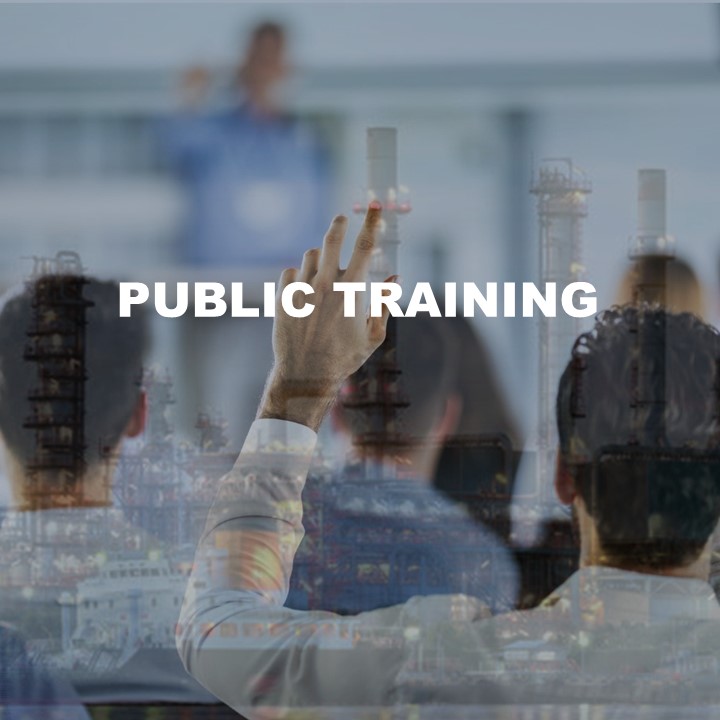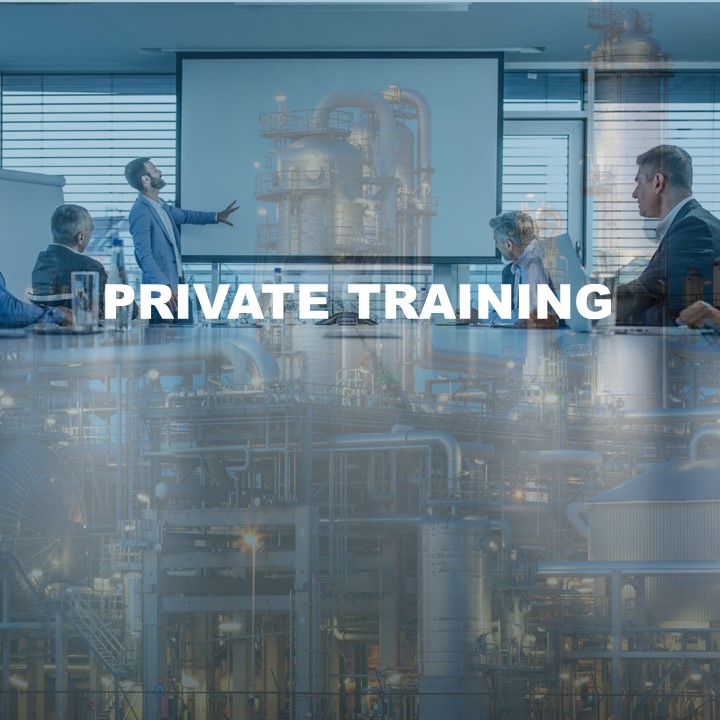|
Loss of institutional knowledge and expertise, high levels of turnover, and a new, fresh group of personnel who are seeking the support they need to level up. Does this sound familiar?
Becht’s public and private training courses can support your workforce through all these challenges, from specialized and customized courses to wholescale curriculum development. Becht’s instructors are some of the most respected specialists in the energy industry around the world, with decades of experience mentoring and teaching industry professionals. We offer a variety of technical courses that span from introductory to expert level training. Our courses provide practical knowledge to unlock your team’s potential. |
| PUBLIC TRAINING
Becht presents courses that are open to the public periodically throughout the year. Upcoming training courses are shown in the Training Schedule below. Follow the links to view course information and to register and pay online. Discounts available! Click here for more details. |
| SCHEDULE |
| Title | Discipline | Date | Hours | Location | |
|---|---|---|---|---|---|
| API-571 Damage Mechanism in the Refining Industry | Mechanical | OnDemand 2024 | 24 hrs. | Videos On Demand | Register |
| Ammonia | Mechanical | July 22 - 26, 2024 | 40 hrs. | Kuala Lumpur, Malaysia APAC | Register |
| SynGas Plants – Preventing Fixed Equipment Failures | Mechanical | July 22 - 26, 2024 | 40 hrs. | Kuala Lumpur, Malaysia APAC | Register |
| Catalytic Reforming Process Technology | Process | September 16 - 17, 2024 | 16 hrs. | The Hague, Netherlands Europe | Register |
| ASME Section VIII, Division 2 – Part 5, Design-By-Analysis | Mechanical | September 16 - 19, 2024 | 32 hrs. | Virtual / Alberta, Canada North America | Register |
| Fluid Catalytic Cracking Process Technology | Process | September 30 - October 2, 2024 | 24 hrs. | Virtual / Houston, Texas North America | Register |
| Water Treatment For Refineries and Chemical Plants | Process | September 30 - October 2, 2024 | 24 hrs. | Virtual / Houston, Texas North America | Register |
| ASME B31.3 Process Piping – Design, Construction, and Mechanical Integrity | Mechanical | September 30 - October 3, 2024 | 28 hrs. | Virtual / Houston, Texas North America | Register |
| API 579-1/ASME FFS-1 Fitness-For-Service Applications and Examples with BechtFFS Software | Mechanical | September 30 - October 3, 2024 | 32 hrs. | Virtual / Houston, Texas North America | Register |
| ASME Section VIII, Division 1 Pressure Vessel Design | Mechanical | October 1 - 4, 2024 | 32 hrs. | The Hague, Netherlands Europe | Register |
| FCCU Troubleshooting & Optimization | Process | October 3 - 4, 2024 | 16 hrs. | Virtual / Houston, Texas North America | Register |
| Technical Writing Basics | General | October 3, 2024 | 8 hrs. | Virtual / Houston, Texas North America | Register |
| Storage Tank Design | Mechanical | October 7 - 9, 2024 | 24 hrs. | Virtual Virtual | Register |
| API-579/ASME FFS-1 Fitness-For-Service | Mechanical | October 8 - 10, 2024 | 24 hrs. | The Hague, Netherlands Europe | Register |
| HF Alkylation | Process | October 8 - 10, 2024 | 24 hrs. | Bilbao, Spain Europe | Register |
| Crude Oil Desalting | Process | October 21 - 22, 2024 | 16 hrs. | Virtual / Houston, Texas North America | Register |
| Refinery Troubleshooting | Process | October 21 - 22, 2024 | 16 hrs. | Virtual / Houston, Texas North America | Register |
| Catalytic Reforming Process Technology | Process | October 21 - 22, 2024 | 16 hrs. | Virtual / Houston, Texas North America | Register |
| Delayed Coking Process Technology | Process | October 21 - 23, 2024 | 24 hrs. | Virtual / Houston, Texas North America | Register |
| Implementation of ASME PCC-2 Repair of Pressure Equipment & Piping Through Case Studies | Mechanical | October 21 - 25, 2024 | 30 hrs. | Virtual Virtual | Register |
| Reformer Catalyst Regeneration | Process | October 23, 2024 | 4 hrs. | Virtual / Houston, Texas North America | Register |
| Hydrotreating & Hydrocracking Process Technology | Process | October 23 - 25, 2024 | 20 hrs. | Virtual / Houston, Texas North America | Register |
| Crude Oil Distillation | Process | October 23 - 25, 2024 | 24 hrs. | Virtual / Houston, Texas North America | Register |
| Refinery Economics and Margin Improvement | General | October 24 - 25, 2024 | 16 hrs. | Virtual / Houston, Texas North America | Register |
| Refinery and Petrochemical Hydrocarbon Loss Management: Improving Performance and The Bottom Line | General | October 24 - 25, 2024 | 16 hrs. | Virtual / Houston, Texas North America | Register |
| Refinery Distillation: Operation & Troubleshooting | Process | November 12 - 13, 2024 | 16 hrs. | Virtual / Houston, Texas North America | Register |
| Amine Treating & Sour Water Stripping Process | Process | November 12 - 13, 2024 | 16 hrs. | Virtual / Houston, Texas North America | Register |
| Machinery Engineering Fundamentals | Mechanical | November 12 - 14, 2024 | 24 hrs. | Virtual / Houston, Texas North America | Register |
| Steam Cracking & Olefin Technology | Process | November 14 - 15, 2024 | 16 hrs. | Virtual / Houston, Texas North America | Register |
| Sulphur Recover, Tail Gas Treatment & Incineration Processes | Process | November 14 - 15, 2024 | 16 hrs. | Virtual / Houston, Texas North America | Register |
| Pressure Equipment Engineering Fundamentals and Damage Mechanisms | Mechanical | November 12 - 15, 2024 | 32 hrs. | Virtual / Houston, Texas North America | Register |
| Basics of Petroleum Refining for Non-Technical Personnel | Process | November 12, 2024 | 8 hrs. | Virtual / Houston, Texas North America | Register |
| Introduction to Petroleum Refining Processing (+ optional Aspen HYSYS) | Process | November 13 - 14, 2024 November 13 - 15, 2024 |
16 hrs. 24 hrs. |
Virtual / Houston, Texas North America | Register |
Discounts:
Becht offers the following discounts on Public Training:
The highest applicable discount will be applied; discounts are not additive.
- Early Registration – A 10% discount is to be provided when you register 30 days before the start date of the training.
- Group Rate – A group discount is applied when you send three or more people from your organization to the same course and provide a single payment.
- Yearly Commitment Discount - A 25% discount when you prepay for a minimum of 10 participants from your organization to any of the courses in the same year.
| No. of Registrants | Discount/Person | ||
|---|---|---|---|
| 3 | 10% | ||
| 4 - 6 | 20% | ||
| 7 and up | 25% |
On-Demand Training Courses:
Learn at your own pace. A pre-recorded training video available anytime, anywhere, on any devices. There will be a live-stream for the question and answer session with the Instructor.
Cancellation Policy:
Full refunds or course transfers are available 4 weeks prior to the class start date. Cancellations 2-4 weeks out are eligible for course transfers or a refund of 60% of the registration fee. Cancellations within 2 weeks of the class will not be eligible for a refund. For any inquiries, please email training01@becht.com.




